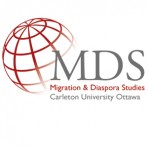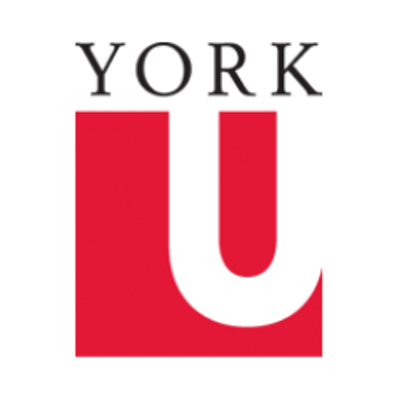
African Studies Newsletter |
Call For Abstracts: Migration & Diaspora Studies Graduate Colloquium Deadline Extended
Submission of proposals for the MDS Graduate Student Colloquium at Carleton University on November 27, 2015 has been extended to October 12, 2015. Proposals should include a title, an abstract of 350 words and a 50-word bio. Submit to MDS through Johnny Alam at johnnyelalam@cmail.carleton.ca |
||
TD Fellowship in Migration and Diaspora Studies
Awarded annually by the Dean of Graduate and Postdoctoral Affairs to a full-time graduate student who is pursuing courses in Migration and Diaspora Studies. Recipients may be residents of any province or territory in Canada and must qualify as entitled to the Canadian Resident Tuition Fee Structure. Established in 2014 by the TD Bank Group. The award seeks to recognize students who will use their studies to contribute to scholarship on migration and diaspora and the recipient will be recommended to the Dean of the Faculty of Graduate and Postdoctoral Affairs by the awards committee of the Migration and Diaspora Studies Initiative. Value: $20,000 (scholarship) Tenure: 1 year Application: Application forms must be accompanied by a CV and Letter of Support from the applicant's advisor or Graduate Supervisor. Application forms can be found here. Submit an application for a $20,000 TD Fellowship in Migration and Diaspora Studies by October 19, 2015 to MDS through Dawn Schmidt at dawn.schmidt@carleton.ca. |
||
Research Grant For Agricultural Research for Development
The International Development Research Centre (IDRC) through the CORAF/WECARD and IITA is financing research grants program on agricultural research for development for African graduate students. The Programme's objective is to improve the institutional capacity of National Agricultural Research System in the targeted countries through the increased number and quality of qualified agricultural science graduates capable of identifying, generating and disseminating research outputs that meet the needs of smallholder farmers and other actors in the food chains. The Programme is targeting the following countries in West and Central Africa: Chad, Democratic Republic of Congo, Sierra Leone and Togo. Each country will receive five scholarships (3 Master and 2 PhD). The grant program applications are particularly encouraged from women. Deadline: 18 September 2015 More information can be found here |
||
Call For Abstracts: African Nationalisms, History and Development
Conference to be held at York University, Toronto, Canada
National development hardly followed nationalists obtaining state power. However, long before the multiple changes brought through neoliberalism's attempt to integrate, or subordinate, Africa to global markets, many nationalists believed that national development was about a political economy of integration and transformation. Despite the many chosen or enforced changes to the paths of development taken since the inception of African independence, its primary meanings, if not its hopes, remain. There continues to be the evocation of long historical processes of transformatory and rapid social change; intentional efforts aimed at improvement by various agencies, including governments, "markets", and various kinds of organizations and social movements; and a description, vision and measure of a desirable society that has overcome poverty. Presently, the distance from the initial historical political imagination of national development frequently persists because of the new challenges posed by both the revival of so-called development states and the numerous uses of the alternatives to state-centric initiatives of development. It is precisely because of this apparent detachment and the prima facie ideological demise of neoliberalism, that this conference aims to revisit the histories of nationalism and national development. Notwithstanding neoliberalism's remaining ideological, institutional and economic vestiges, nationalism and national development are not exhausted. This conference seeks neither to constantly render histories of national development to analogies from elsewhere, nor, as per the newer advances in the comparative economic history of development, to only attempt to account for Africa's "great divergence" from other historical paths of development. Rather, the conference aims to understand both the general and specific historical roots entering into Africa's heterogeneous nationalisms and the legacies that continue to shape or constrain their intended or unintended developmental trajectories. While the themes of the conference are neither exhaustive nor exclusive, we would like participants to bear some of the following themes in mind. Themes:
Please send a 200-300 word abstract in English or French to natdev1@yorku.ca by September 31st, 2015. – En Afrique, la conquête de l'État par des forces nationalistes a rarement donné lieu à un véritable développement national. Or bien avant que le néolibéralisme ne bouleverse l'Afrique en l'intégrant – voire la subordonnant – au marché mondial, plusieurs nationalistes croyaient que le développement des pays africains passait par une politique d'intégration et transformation. Malgré les nombreux détours empruntés de gré ou de force dans les parcours de développement tracés depuis l'indépendance, son sens initial, sinon les espoirs qu'il suscite demeurent. Les évocations de longs processus historiques de rapides changements sociaux se répètent alors que les nombreuses agences, notamment gouvernementales, les « marchés », et une grande variété d'organisations et de mouvements sociaux déploient des efforts conscients d'amélioration qui reprennent une description, une vision et la mesure d'une société désirable qui aurait surmonté la pauvreté. Actuellement, les imaginaires historiques et politiques d'origines sur le développement national demeurent enfouis sous les nouveaux défis posés tant par la renaissance d'États développementistes, que par les nombreuses tentatives de forger des alternatives au modèle de développement centré sur l'État. C'est précisément dans ce contexte de détachement apparent et par l'évidente faillite idéologique du néolibéralisme que cette conférence se propose de revisiter les histoires du nationalisme et du développement national. Car malgré la résilience de nombreux vestiges idéologiques, institutionnels et économiques du néolibéralisme, le nationalisme et l'idéal de développement national sont loin d'être épuisés. Cette conférence ne cherchera pas simplement à dresser un portrait du développement national qui reposerait sur des analogies avec les histoires venues d'ailleurs, ni non plus à rendre compte de la « grande divergence » de l'Afrique relativement à d'autres parcours historiques telles que le suggèrent les dernières avancées en histoire économique comparée du développement. Cette conférence tentera plutôt de cerner autant le portrait général que les particularités historiques des racines qui pénètrent les différents nationalismes d'Afrique, dont l'héritage continue de teinter, voire de contraindre les trajectoires intentionnelles ou accidentelles de développement. Bien que les sujets énoncés ne soient pas exhaustifs, ni ne se veulent limitatifs, nous invitons les participants et participantes à avoir les thèmes suivants en tête :
Les résumés d'entre 200 et 300 mots en français ou en anglais doivent parvenir à l'adresse natdev1@yorku.ca d'ici au 20 septembre 2015. |
||
REMINDER: Event At Carleton – Categorization and Knowledge Production in Migration Management: Transnational Perspectives
When: September 10, 2015 Time: 2:30 PM – 4:30 AM Location: Robertson Hall Room: Senate room 608 Cost: Free Email contact: ottilie.grisdale@carleton.ca and martin.geiger@carleton.ca
Please join us Thursday September 10th, 2015 for the first event of the term in our lecture series:Mobility & Politics: Emerging Trends and Common Challenges in Europe and Canada.
Two international visitors will present in a joint workshop entitled "Categorization and Knowledge Production in Migration Management: Transnational Perspectives". This event will be held from 2:30-4:30pm in the Senate Room (Robertson Hall Room 608), at Carleton University. No registration is required. For more information please see below.
Kenneth Horvath (Karlsruhe, Germany): Changing Ethnic Categorizations in the EU European government approaches to ethnic categorization have undergone important changes since the Second World War. Using the category example of 'migration background' – currently the dominant framing in German-speaking countries – this presentation will examine how category changes are informed by the interplay of politics, statistics and education. Drawing on discussions in Canada and the US, possible future developments and challenges that arise for European social research will be discussed. Kenneth Horvath is a postdoctoral researcher at the University of Education Karlsruhe (Germany) where he teaches qualitative and quantitative research methods. His current research focuses on migration-related educational inequalities and their political and pedagogical reproduction. Among others, Kenneth is co-editor of "An Anthology of Migration and Social Transformation", forthcoming with Springer (December 2015).
Sabine Dini (Paris XIII, France): Migration Management and the Norm of Nationhood: Insights from Eastern Africa During the last decade, the two leading intergovernmental organizations dealing with migration management globally, the International Organization for Migration (IOM) and the United Nation High Commissioner for Refugees (UNHCR), have implemented a "révolution identificatoire" in Eastern Africa. This presentation gives an ethnographic account of IOM and UNHCR's production of "nationality" as both a category and defining norm. The implications of this cultivated "nationality" for local actors with respect to policy implementation, and its more general implications for citizenries will also be examined. Sabine Dini is a PHD candidate in Political Sociology at the University of Paris 13 and currently also a Visiting Scholar at Carleton University. Her research interests are guided by the intersection of International Relations and African Studies, and she is currently engaged in explorations of state-formation and nation-building in Eastern Africa. Specifically her analysis focuses on the role of intergovernmental organizations (dealing with global migration management) within the production of stateness and the institutionalization of the nation within the state.
Our workshop will be chaired by William Walters, Carleton University.
This event in the Mobility & Politics Lecture Series is organized by Martin Geiger. It is co-sponsored and hosted jointly by the Migration & Diaspora Studies (MDS) Initiative, the Centre for European Studies (CES), the Institute of European, Russian and Eurasian Studies (EURUS), the Institute of Political Economy and the Department of Political Science at Carleton University. For further information please contact the organizer at martin.geiger@carleton.ca |

|
African Studies Newsletter is produced by the Subscription preferences can be changed below. |
|